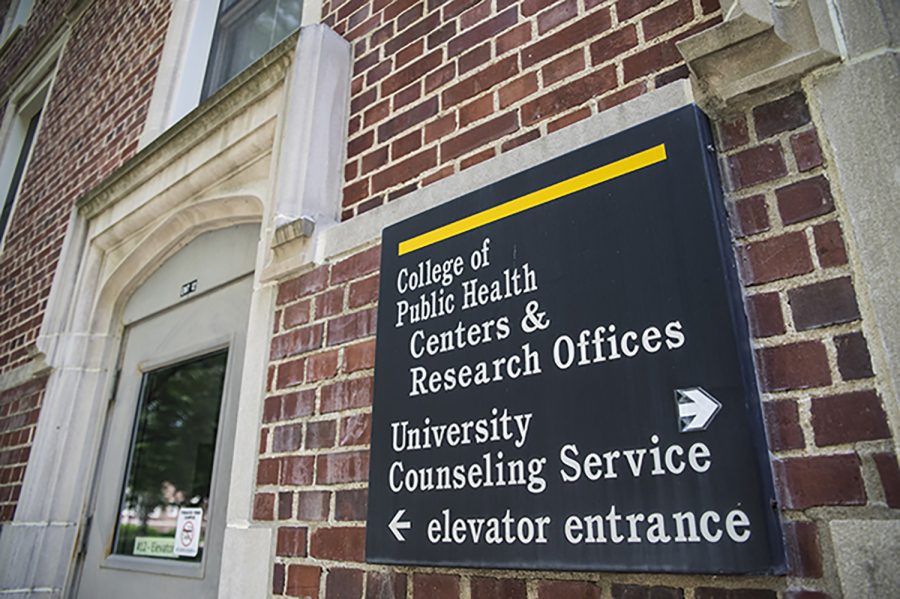Hawkeye Allies program continues inaugural year
The Hawkeye Allies program, created in the spring of 2018, enters its first full year.
Halls inside the University Counseling Service are shown at Westlawn on Wednesday, July 5, 2017.
September 3, 2018
The University of Iowa Counseling Service, in collaboration with University Housing & Dining and the Rape Victim Advocacy Program, created the Hawkeye Allies program this past spring semester to provide peer-to-peer support for survivors of sexual assault.
One in 5 women and 1 in 14 men are sexually assaulted during their college years, according to statistics released by RVAP. The number is higher for transgender individuals — 1 in 4.
Resident assistants nominated the participants in the program, and those picked started training in February. Trainees underwent education on victim advocacy, on- and off-campus resources for survivors, and confidentiality rules.
Patrick Galligan, a staff psychologist at Housing & Dining, Kristin Wurster, a doctoral candidate in counseling psychology, and Nailah Roberts, an RVAP prevention-education coordinator, directed the training.
The education taught trainees to compassionately and confidentially respond to sexual-assault survivors and direct them to appropriate resources.
UI sophomore Alina Nowicki, a former participant in Hawkeye Allies, said the training she underwent helped her become a better-rounded individual and more perceptive of people’s problems.
“You never really know what’s going on with people,” Nowicki said. “If you have a negative interaction with someone, it could be because of something like [a trauma].”
She supports continuating the program, regardless of how many students use it.
“In heavier topics, people are more likely to reach out to other students,” she said. “[Hawkeye Allies] made me more aware of the support system put in place by the university.”
The goal of the program was not to replace more traditional resources, such as RVAP or the Women’s Resource and Action Center, but to provide students with a support system in residence halls, according to the Hawkeye Allies website.
Galligan remains optimistic about the future of the program.
“In terms of the Hawkeye Allies program, we’ll still roll it out this fall,” he said. “The first thing that has to happen is students have to be nominated, so we’ll go through a similar nomination process in the next couple weeks.”
RAs will likely have two weeks to nominate residents, Galligan said. The next round of training will take place later this month or in early October.
Galligan said a goal of the program is to keep growing the pool of the nominees and to find a way to keep off-campus students involved, whether through helping train new nominees or holding events.
Hawkeye Allies from the spring semester will receive an email in the next few weeks to see if they wish to continue to be involved.
Currently, the Hawkeye Allies program is focused solely on on-campus residents, but Galligan said that the program could grow if the need is there.
“[The] program may have enough needed areas of campus, where it may grow with the residence halls, grow it into other areas of campus,” he said.




